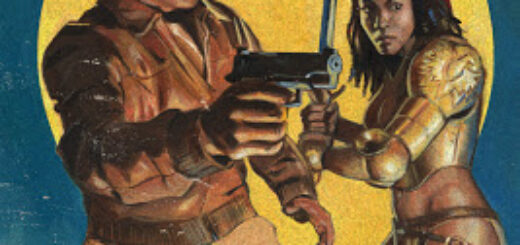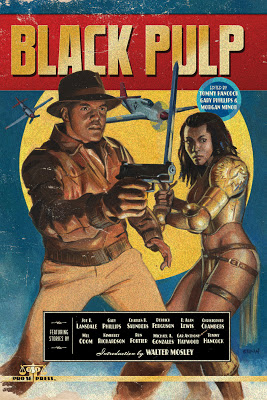John Ostrander: Flood of Opinion
 My late wife Kim Yale had a very tender heart; if someone was critical of her or didn’t seem to like her, it would tear her up. She would take it very personally. I told her that not every opinion matters and sometimes it registered with her.
My late wife Kim Yale had a very tender heart; if someone was critical of her or didn’t seem to like her, it would tear her up. She would take it very personally. I told her that not every opinion matters and sometimes it registered with her.
I think it was Steven Grant who I first heard say that opinions were like assholes; everyone has one. Opinions can also be a conduit for a whole lot of crap.
Not every opinion matters. Not to me. Do I listen to my fans? I should and I do but, as I’ve said to different people at different times, just because I’m not doing what you’re telling me doesn’t mean I’m not listening to you. Fans, as a rule, want the same thing again next time only different. If you try to give fans what you think they want, half of them will get angry because it wasn’t what they wanted. I once heard J.K. Rowling of Harry Potter fame say on a video interview (I’m paraphrasing but it’s close), “Should I listen to my readers? Absolutely. Should I allow what they say to change one word of what I do? Absolutely not.” QFT.
When I listen to readers, it’s because I’m looking to get an idea of what is effective in my work, what is not, what may be in it that I didn’t even realize, and – if they’re saying nice things – I like getting my ego stroked as well as the next narcissist. What I’m listening to is their impressions of what I’ve done. Often as not it will tell me more about the person giving that opinion than it will about the work itself.
If you’re a young writer or artist and you want someone to give you an opinion of what you’ve just done, be careful who you ask. Do you really want an opinion or do you just want them to tell you that the work is wonderful and so are you? Do they know anything about the work you’re doing? Is it an informed opinion or just a “gut feeling?” There are people that I trust, who I know, and their opinions matter to me. Others – not so much. I often have no context for the value of their opinions.
I was put in mind of all this by the recent death of Roger Ebert. Over the years, I read his reviews and I knew from experience that he could be a good guide for me. When it came down to Ebert and Siskel, I knew Roger Ebert’s opinion of a film would more likely be like mine than would Siskel’s. Ebert could alert me to films I might not have seen and warned me away from ones that would probably waste my money and my time.
The world is full of crap-filled opinions and the Internet overflows with them like the Deep Tunnel project in Chicago during this last week’s floods. A lot of times the opinions masquerade as “fact” but they really are just one person’s opinion and often a skewed one at that. Often, they are written by Anonymous or Pseudo-anonymous. How can I decide whether an individual’s opinion is worth anything to me if I know nothing about them?
It boils down to this – not everyone’s opinion matters whether be about work, about politics, about people, about art, about society – about anything. There’s wheat and there’s chaff out there – lots and lots of chaff. Discern which is which for yourself and you’ll be a happier person.
In my opinion.
MONDAY: Mindy Newell
TUESDAY: Emily S. Whitten






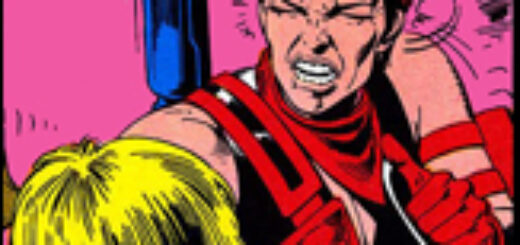


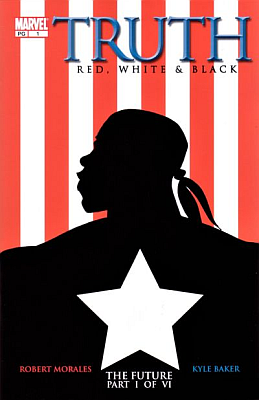


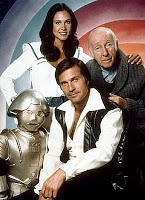

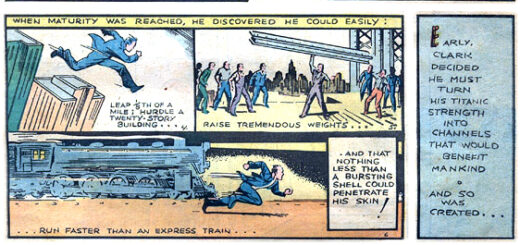
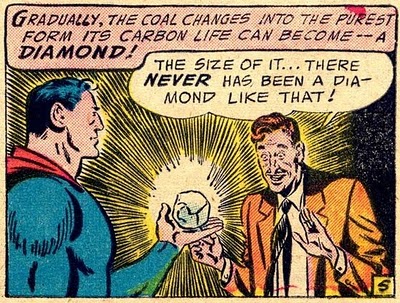 Seventy-five years ago on this day in 1938, the Golden Age of Comics began with the release of Action Comics #1, where Jerry Siegel and Joe Shuster introducing us to a strange visitor from another planet with powers and abilities far beyond those of mortal men– Superman! Who can change the course of mighty rivers– bend steel in his bare hands– and who, disguised as Clark Kent, mild-mannered reporter for a great metropolitan newspaper, fights a never-ending battle for truth, justice, and the American way!
Seventy-five years ago on this day in 1938, the Golden Age of Comics began with the release of Action Comics #1, where Jerry Siegel and Joe Shuster introducing us to a strange visitor from another planet with powers and abilities far beyond those of mortal men– Superman! Who can change the course of mighty rivers– bend steel in his bare hands– and who, disguised as Clark Kent, mild-mannered reporter for a great metropolitan newspaper, fights a never-ending battle for truth, justice, and the American way!



